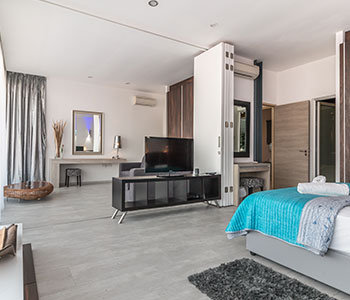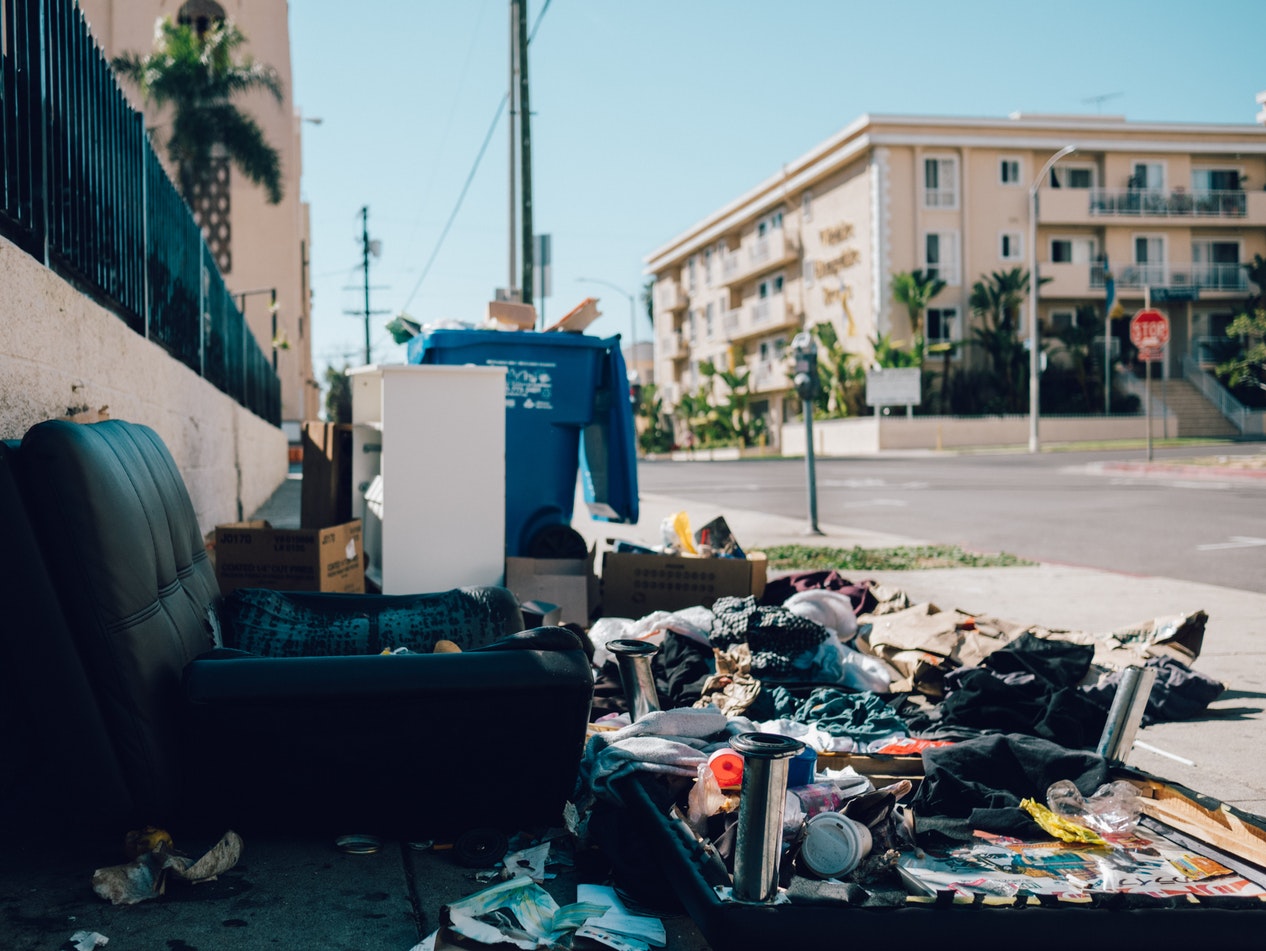Today we’re going to talk about what is

5 Facts about Renting Properties in the Philippines
Rental is a robust part of the real estate economy here in the Philippines. There is a very healthy rental market for properties here and this law that we will discuss today actually helps guide many of our people living here in the Philippines in renting properties, both the landlord and the lessee.
So, for today’s discussion, we’d like to talk to you about one of the beautiful laws that have been enacted to protect the lessee and the landlord. Did you know that there’s a law that actually protects the landlord and the lessee? It is called the Republic Act 9653 or more commonly known as the Rent Control Act. For the purposes of this discussion, simply put: Rent will be the amount you pay for the usage of a residential unit. Which leads me that I have to define a second term, “What is a Residential Unit?” A residential unit is defined in the Rent Control Act as: “Residential unit” shall refer to an apartment, house and/or land on which another’s dwelling is located and is used for residential purposes shall include not only building houses, dormitories, rooms and bed spaces offered for rent by their owners.
This law in particular covers all residential units in the National Capital Region and other highly urbanized cities which has a total monthly rent for each residential unit ranging from One peso (P1.00) to Ten thousand pesos (P10,000.00) and all residential units in all other areas, the total monthly rent for each of which ranges from One peso (P1.00) to Five thousand pesos (P5,000.00), without prejudice to existing contracts.

So, this simply refers to residential units. But how do we define a residential unit?
For this particular discussion we will exclude hotels, motels and hotel rooms. Because even if this is particularly used as a dwelling place, this is used for commercial purposes. So, we’re going to be limiting our discussion to only residential homes, lots, or anything that is used for residential purpose. That’s a very important stipulation for this particular discussion.
For this discussion as well, the law will not cover rent-to-own schemes. Because this, in actuality, is a sale transaction. It’s just that the amortization or installment payments are so low that they match the rental rate in the area. So, again, the rent-to-own scheme actually is a sale transaction. It’s not a rental transaction that can be covered by the Rent Control Act. So, this discussion will not cover the rent-to-own schemes.
So, going back. The first fact about rental properties in the Philippines is:
1.) 7% ESCALATION RATE

The maximum amount of increase in the rental is rate 7% per annum. You cannot increase higher than this because you will simply be violating the law. If the unit becomes vacant, that will be the only time that you will have an opportunity as landlord to reset the properties’ rental price to a new rate. Then it’s going to be 7% from then. If your tenant is the same and they are just simply renewing on a yearly basis, the maximum escalation rate that you can apply for your rental is only 7%. That is provided by the law. You will find it in Section 4 of the Rent Control Act. It specifies that the rental rate will not be more than 7% annually as long as it is occupied by the same lessee. In the case of dormitories, rooms and bed spaces, it also specifies that the increase in rental rate should not be more than once per year. So, the law really protects the tenant in this case. So, that the landlords, some people who would like to take advantage of the person because they’ve been living there, they’ve been staying in the area for quite some time, they’re used to it and it’s their place of abode, it protects the tenant or the lessee from unscrupulous malpractices by landlords who just want to jack up the price out of nowhere. For example, you’re renting a property for P35,000 a month and he just suddenly wants to increase it to 500,000 pesos a month, otherwise, he’s going to eject you. He can’t do that to you. The maximum is only 7% of his current rental rate that you agreed with.
2nd: The suggested date of payment is within the first five days of the month unless otherwise specified by the contract

The second fact that we have to know about the Rent Control Act is the suggested date of payment is within the first five days of the month unless otherwise specified by the contract. In the Rent Control Act under Section 7, the suggested date of payment or the rent is within the first five days of that particular month, unless otherwise specified by the contract and agreed with by both parties: the landlord and the lessee. That’s the suggested date by the law. It’s not required but is only suggested. Because if you agreed with the landlord that you’re comfortable paying the rent every 16thof the month because it’s after the payday, and you’re able to sort out your finances that way, and if the landlord agrees then it’s actually okay according to the law. But the suggested date is on the first five days of that particular month.
3rd: ON SUB-LEASING

The third fact will talk about Subleasing. Subleasing a property that you are leasing is prohibited unless there is a written consent by the owner. This is true whether it’s in whole or in part. You can’t go to the owner and say, “I only sublease a 10-sqm of my 1,000-sqm property. So, it’s a small thing. Let it go.” No. If there is no written consent then it will not be allowed. But, if there is a written consent, and the owner of the property allowed you to sublease; say for example, you occupy a whole home and then you turned it into a dormitory, you subleased it. Provided that it is allowed by the owner, and probably the community where the property is located, then you should not have any problem if you have the written consent. But if you just subleased the property and then there are people coming in and out, you don’t know who they are and then everyday there’s someone different, it’s like a hotel, and it’s like you’ve turned this house into a mess then that will actually be a ground for ejectment. For you and your someone else’s tenants. That’s just simply illegal. So, you can’t do that. You can’t abuse your right as a tenant. And you can’t abuse your rights as a landlord. So this law really protects both the landlord and the lessee as far as their transaction is concerned.
4th: GROUNDS FOR EJECTMENT

The fourth fact about renting properties in the Philippines is Grounds for Ejectment. According to Section 9 of the Rent Control Act, there are several grounds for ejectment, which can be legally enforced so that the tenant will have to leave the property most especially if he abuses rights as the renter of the property.
4.1. The FIRST GROUND for ejectment is: subleasing the property without the written consent. That’s really the first ground because you just simply abused the trust of the landlord. So, we can’t do that. If you have to do that, you have to be explicitly clear with the landlord. Or better yet, if you’re going to do that, included in the rental contract, your initial rent of contract with the landlord that you’ll be subleasing the property so that he knows. And every aspect of this will be clear with the landlord. So that’s number one.
4.2. The SECOND GROUND for ejectment for the property that you’re leasing is: Three months arrears in payment. Have you ever had this particular case when you miss one month and then your landlord just simply wants to bring your out of the property? That’s not allowed. You need to have arrears or missed payments of at last three month of your rented property before your landlord is able to have the right to really eject you from the property. This is not to be abused and this particular clause in the law does not include the owner’s refusal to collect your rent. Say for example, you had a misunderstanding. The landlord hates you. You hate your landlord, too, in return. And you want to pay your rent. You’re paying your rent diligently. And the lessor or landlord in this case is refusing to accept your payment. That’s not allowed. That’s not counted as one missed payment. You really have to legitimately miss the payment and the landlord will have to collect. It’s not a ground for playing with the law. It’s really not allowed. That’s really not the ethical thing to do. That’s not, this is not a ground for the landlord to simply refuse your payment and within three months he can take you out. No, this is not the way it works. He needs to accept because that’s in the agreed contract provided that you are not violating your contract’s stipulations, then he has to accept your payment. So, going back to ejectment. If you miss your rent for the next three consecutive months, then the landlord will have a legal ground for ejecting you out of that leased property.
4.3 The THIRD GROUND for ejectment is the legitimate need of the landlord to use his property for the use of his relatives. This is where we become a little bit technical on how it’s supposed to be used. The landlord cannot eject your within the term of the contract but he can opt not to renew it, as your contract will only run for a year. So when the renewal time comes and the contract expires, if he has to use it for himself or for his relatives, then he has legal grounds to eject you. But provided that he gives you an advice three months ahead. This has to be written. This has to be well documented. And also, the residential property will have to be used by him or relatives. It cannot be used by any third party for the next year at least, for the next 12 months. He cannot lease it out or have a friend or any third party use it otherwise. It has to be him or his relatives because the property protects the unit owner and his immediate family. If he just wants to eject you so he can get a higher lease from someone else, he can do it the next year. He has to live there or his relatives has to live there. So this simply means that if you eject a person leasing your property and your reason is that you will be using it for your personal use or your relatives, then you cannot lease it out to anyone else or you cannot have any third party use the property for the next year. Now, in the case where the landlord needs to make a repair and the owner needs to make it a better habitable space so that it’s gonna keep up with the times then he has the right to eject the tenant provided that once this particular space has been returned, the tenant will have the first option to lease it back from him. But if the property has already exceeded its economical use and it has to be torn down and you have to build another one from scratch, then the landlord will not be obligated to offer it first to the original tenant.
5th: Protection against mortgage or sale of the property

The fifth fact is Protection against mortgage or sale of the property. According to Section 10 of the Rent Control Act, no landlord will be allowed to eject a tenant by reason of sale or mortgage of the property. How does this happen? You found the property you like to rent as a tenant. The landlord gives you a lease contract and probably after two or three years of leasing the property continuously, he suddenly found himself in a position that he has to mortgage a property. This happens in real life. Or either he mortgages a property or he’s able to sell the property to another party and now you have to leave because the new owner has different plans for the property. And he probably wants to lease it to someone else. Who knows? But in a case like this, the landlord has no right to immediately eject you from the property that you’ve been leasing. The next owner has to honor that contract and of course, let the contract run out or expire. They have to honor and respect that contract. He can’t go to you and say, “Okay, Mr. Tenant, I’ve already sold the property. You have to move out tomorrow. And the new owner’s gonna take over.” He can’t do that to you. That’s not gonna work. It’s not allowed by the law, and It protects the tenant as well. And if there’s new buyer that comes in, they have to honor the contract. They have to make sure it runs through its course. So it protects the tenant also from unscrupulous practices. Or probably any unforeseen intants wherein the owner sells his property and the tenant will have to scramble for another living space. No, that’s not what the law provides. You are protected as the renter of the property. And the landlord’s also protected as far as the payments is concerned. Now, if you miss your payments for three consecutive months, that’s not his problem anymore. He will have legal grounds to eject you. But as long as there’s a proper contract, it’s according to the laws of the Philippines, and all of these stipulations are being followed by both parties, you are gonna be protected by the Rent Control Act.
So, that’s it for today. I hope today’s topic about Rent Control law was able to give you more insights as to what your rights are as a landlord and as a tenant. I hope you learned more from this video and we look forward to seeing you again here.
Hi, I hope you enjoyed reading this blog. But moreover I hope I was able to give you more value for you and your business.

